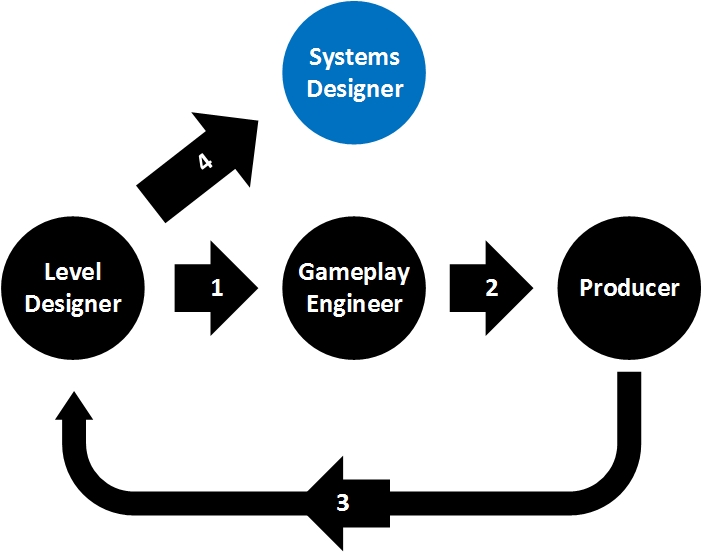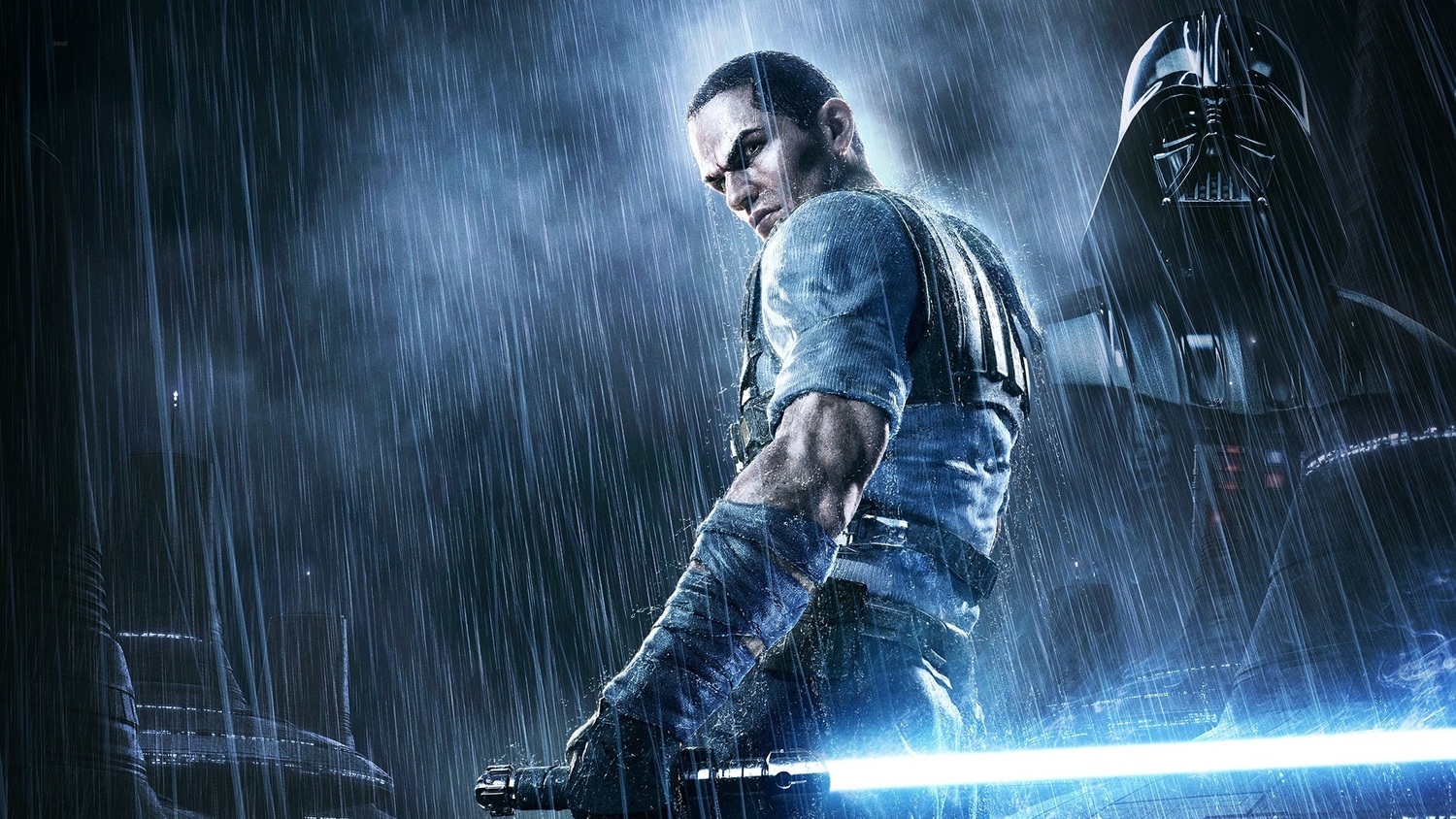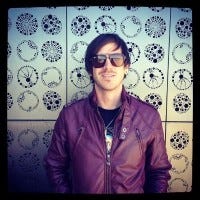
Featured Blog | This community-written post highlights the best of what the game industry has to offer. Read more like it on the Game Developer Blogs or learn how to Submit Your Own Blog Post
A Game Dev Story, Part 2 (Resolving An Identity Crisis)
In part 2 of a 3 part post, I take a look back at my time working for LucasArts, when I was trying to figure out exactly who I was as a Game Developer.

This post was originally published on Ryan Darcey's blog, Making Moves.
After my crash course in game development at Terminal Reality, I was ready for a new challenge and a new city. Moving from New York to Dallas was 100% for my career and I felt like I needed to prioritize my lifestyle for this next one. So, when I attended the GDC for the first time in 2007 and fell in love with San Francisco, I made that my next target. With the help of GameDevMap, I applied to every AAA company in the Bay Area. Within a week, LucasArts contacted me about an Associate Producer position in their shared tools & tech department that was collaborating with ILM on an extremely ambitious new proprietary game editor called Zeno. After the final round of interviews, when I actually asked if it was alright that I didn't like Star Wars (not my only faux pas at LucasArts...will get to that), I was offered the position and moved to San Francisco a month later.
There's a lot to talk about surrounding my 6 years at LucasArts, which was plagued (and ultimately killed off) by 3 giant layoffs, but at the center of my experience was this internal struggle to figure out exactly who I was as a Game Developer. So, I'll try to break down how this wayward career path made sense for me.
A LONG TIME AGO IN A GALAXY FAR FAR AWAY...

"WE WOULD BE HONORED IF YOU WOULD JOIN US."
When I arrived at LucasArts, Charlie Hite was the Lead Producer running the shared tools & tech department and was responsible for the day-to-day management of Zeno; the aforementioned proprietary game editor. At this point, I had experience using a game editor as a Level Designer and I had experience implementing one as a Gameplay Engineer, but trying to manage the development of a brand new editor while the game it's servicing is in full production...that was bonkers. Charlie helped me navigate this new, giant studio and was a great mentor when it came to the fundamentals of management. I hustled hard trying to wrangle all the resources and requirements for new features in Zeno, but ultimately decided that I needed to get back closer to the actual game. Being one step removed working on the editor was too far.
So, after about 1.5 years working in the shared tools & tech group, I transferred over on to the Indiana Jones and the Staff of Kings project to assist with producing the design team under Joe Estus. But, not long after that, the Xbox 360 and Playstation 3 SKUs were canceled and a huge portion of the studio was laid off.
"BEN! I CAN BE A JEDI. BEN, TELL HIM I’M READY!"
After this first round of layoffs, I continued working as a producer servicing game design, but now it was on Star Wars: The Force Unleashed II under Julio Torres. Shortly after development started in earnest (it languished for a while in development purgatory), LucasArts brought on ex-God of War director Cory Barlog as Creative Director of the studio and his focus was largely dedicated to SW: TFU2. I had the very-fortunate-in-hindsight opportunity to be assigned as the production liaison between Cory and the rest of the SW: TFU2 team. While it was an extremely turbulent time for the studio, I learned A TON from working with Cory about design fundamentals. Not to mention, Eric Williams, Cory's right hand man on God of War (at least this was my impression), came out for a week to consult with the team and his level of skill/knowledge around combat systems design was a game changer for me. At this point, I knew that it was time to go back to design. That's where I wanted to be.
So, one day I was having a conversation with Cory about one of his initiatives and he asked a question along the lines of, "Why do you understand what I'm talking about more than some of the other designers here?" I replied with, "Well, I used to be one!" With that, Cory basically said he'd vouch for me if I wanted to transition back into a design role. So, with the blessing of upper management and Cory's support, I went on to design the first level and E3 demo for SW: TFU2 under John Stafford.
The end of my second age at LucasArts culminated in another giant round of layoffs after SW: TFU2 shipped. Luckily, I survived this one as well. With a renewed focus on design, I knew I was closer to being on the right track...but not quite there yet!
"READY ARE YOU? WHAT KNOW YOU OF READY?"
The last phase of my time at LucasArts was spent working on what would become Star Wars: First Assault; the first step towards a more fully formed reincarnation of Star Wars: Battlefront. For legal reasons I can't get into much detail about the specifics of that project, but as it's relevant to this blog post, I'll briefly touch upon it. It truly encapsulated the best and worst of times. To stay focused on the very best part, I'll skip over to the phase where Jeff Morris was Lead Producer, Tim Longo was Creative Director and Ed Kay was the Lead Designer (aka my boss).
After having just shipped SW: TFU2, I was on the Level Design track, but this new SW: FA team was so small that artificial boundaries surrounding your title started to melt away. Designers were designing. Everything. Levels, game modes, combat, UI, etc. This is when I started veering more towards the systems end of the design spectrum. Also, I found that my background in production and engineering complimented the role extremely well. I was granted code access and was made a strike team leader. Basically, I tried to turn myself into a one-man-prototyping team. I led brainstorms to come up with initial designs, I engineered simple prototypes, I created temp content and I assisted with the scheduling of additional resources to see features through to completion. I felt like I was firing on all cylinders and had finally found what I was looking for as a Game Developer; to truly work to the limit of my abilities, not my official title.
Even though SW: FA was canceled 2 months before our projected ship date when Disney closed LucasArts' doors forever, I still look back on it as the best experience of my career. That feeling of accomplishment and effectiveness finally being placed in the "right" role was unrivaled.
"THE CIRCLE IS NOW COMPLETE."
This is where I left LucasArts; crushed with the loss of what felt like a family, but fully transformed and focused on Systems Design. I don't necessarily recommend that anyone go about their career bouncing all over the place like I did, but now that I'm developing a game on my own I'm incredibly grateful to have had the experience. What I can say, unequivocally, is DO NOT accept your current job or role as the one that's best for you. Test your boundaries and listen to that nagging voice in your head that's telling you something's not quite right. Make a plan and make some moves!
Oh, yeah...if you also want to hear about how I accidentally got myself chased off the second floor of the Main House at SkyWalker ranch & how I lied to the government about my drug use (unrelated), you can listen to this podcast. Also, real talk: I googled all these Star Wars quotes and posted them without much, if any, knowledge of the context in the films O_o I'm sorry! I love Lord of the Rings. Tolkien won my heart first and didn't leave much room for Star Wars.
Lastly, a very special thanks to all the folks mentioned in this post. Without their support, encouragement and mentorship, I'd still be chasing my tail.
 @Ryan_Darcey
@Ryan_Darcey

Read more about:
Featured BlogsAbout the Author
You May Also Like














